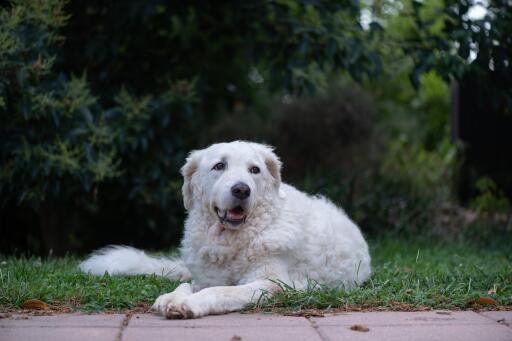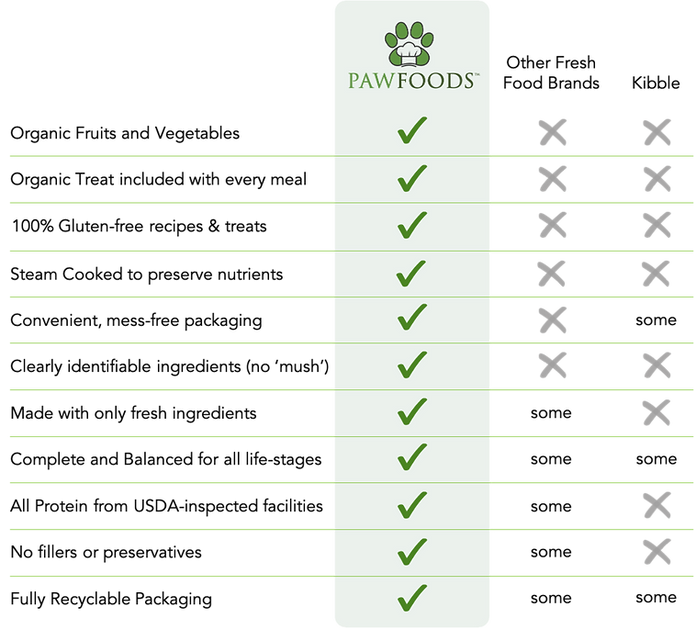
The beagle is a small scent hound related to the larger foxhound. The original purpose of this breed was to hunt hare. Today, the beagle is a popular hunting dog and can be found around the globe. It displays a high level of vigilance and is capable of tracking its prey with pinpoint accuracy.
Xenophon (1897). Hunting (Cynegeticus).
The essay by Xenophon "On Hunting With the Beagle", outlines important steps to hunt with the beagle. First, the hunter must teach his hound to recognize the hare. The master should feed the hounds around the hare’s nets. Then, once the hare is captured, the hunter must reward the hounds with food.
Xenophon goes on to discuss the importance of hunting and how it can help the war effort. Hunting can be an invaluable way to retrieve fellow soldiers in a difficult place. Hunting is a way to make men more upright and more sober. It also trains them in truth-telling. Soldiers who hunt for virtue are better than those who hunt.
Xenophon gives a fascinating and thought-provoking explanation on hunting with the beagle. He explains the importance of different types of hounds in hunting the game and then he describes various modes of chasing. Some dogs follow the chase with an unspecific approach, while others pursue the target in a purely physical manner, while others do so with a sense of jealousy.

Before the rise of foxhunting in the 19th century was fashionable, beagles were still used to hunt hare. The beagle was a natural hunting companion for both young and old hunters. The beagle is also the best dog to hunt in undergrowth and has excellent scent-tracking abilities.
Xenophon (1897), Xenogeticus
It's up for debate and interpretation what Xenophon believes in his political philosophy. However, some works reveal his dislike for democracy and preference toward oligarchy. Cyropaedia can be considered one such work. It is an important work for those who wish to understand Xenophon's political philosophy.
Xenophon was a military leader, philosopher, and historian. He was born in Athens. In 401 BC, he was made commander of the Greek military mercenary force. He also established many precedents in logistical operations during this period. He was also the first person to describe feints and flanking strategies in battle.
Xenophon’s writings largely reflect his life experiences. The Anabasis and Cyropaedia describe his adventures in 401-400 BCE. He was also associated with Socrates, an influential teacher. The Hellenica, on other hand, is his personal perspective on the politicalomilitary and military history of his times. His writings on military command and household management were also influenced by personal experiences.
Xenophon, apart from his Xenogeticus he also wrote six other works. Cynegeticus, one of these works, deals with technical aspects in hunting. It includes instructions on hunting with dogs, nets, and foot. Xenophon sees hunting as a divinely ordained activity. This promotes excellence. Another work, De re equestri, deals with horse ownership. Cavalry Commander, his last book, focuses on the improvement of Athenian cavalry regimens.

Xenophon's ethical system is closely tied to the gods. He refers to them frequently in ritual and ethical contexts. Xenophon was pragmatic in his approach to the gods. However, he insists on the moral component of practical skills.
Xenophon was a child of a wealthy equestrian family and was born in 430 BC. He was a part of a revolutionary arm that sided against Cyrus the Younger. He became involved in Artaxerxes II's revolt in 401 BC. Xenophon had a crucial role in the Persian campaign of Artaxerxes against Artaxerxes.
FAQ
What is pet insurance?
Pet Insurance offers financial protection to pets in case they are injured or become sick. It also covers routine medical care like vaccinations, spaying/neutering and microchipping.
Additional benefits include emergency treatment in the event your pet becomes ill or is involved in an accident.
There are two types if pet insurance:
-
Catastrophic insurance - This policy covers your cat's medical expenses in the event of severe injury.
-
Non-catastrophic - This type covers routine veterinary costs, including vaccines, microchips, and spays/neuters.
Many companies offer both catastrophic as well as non-catastrophic coverage. Some companies offer only one type of coverage.
These costs will be covered by a monthly premium. The amount of your pet's care depends on what you spend.
The price of your insurance depends on which company is chosen. Do your research before purchasing.
You may be eligible for discounts if more than one policy is purchased by the company.
You can transfer an existing pet insurance plan from another company to a new one.
If you decide not to buy any pet insurance, then you'll have to make all of these payments yourself.
However, there are still ways to save money. Ask your veterinarian about discounts.
You might be disregarded if your pet is seen often.
You can also find local shelters where you can adopt a pet, rather than paying for one.
No matter which type of insurance you choose, it is important to read all the fine print.
This will show you the exact value of your coverage. Contact the insurer immediately if you are unsure.
How much should I budget for my pet?
Budget between $200-$300 per calendar month.
It all depends on where you are located. For example, in New York City, you'd probably spend about $350 per month.
In rural areas, however, you might only need to spend $100 per month.
You need to make sure that your pet has quality toys and collars.
You should also think about investing in a crate for your pet. It will protect your pet during transport.
Which is the best pet you have?
The best pet you can have is the one you love. There is no one right answer. Every individual has his/her own opinion on the best pet.
Some believe cats are more intelligent than dogs. Others say that dogs are more loyal and loving. Others still believe that birds are the best choice for a pet.
No matter which type of pet you decide on, you have to choose what type of personality you want.
For instance, if you're outgoing and friendly, then a dog would be perfect for you. A cat or dog would be the best for you, if you are shy and reserved.
Consider the size of your house or apartment. A smaller apartment will mean that your pet will require a smaller size. You'll need more space if you have a larger home.
Last but not least, pets require a lot of attention. They need to be fed regularly. They need to be taken for walks. And they need to be brushed and cleaned.
These are the things that will help you choose the right pet for you.
How to train a pet?
Consistency is the most important aspect of training a cat or dog. You must make sure you are consistent in how you treat them. If they think you're mean they won't trust you. They might also start to think that all people are mean.
You can't expect them to know what to do if they aren't treated consistently. This could cause them to become anxious around others.
The best way to teach a dog or cat is by using positive reinforcement. They will be motivated to perform the same behavior if you reward them.
They will associate bad behaviours with punishment and rewards if they do wrong.
Treats such as toys or food should be used to reinforce good behavior. Praise is a great way to reinforce good behavior.
Clickers can help you train your pet. Clicking is when you press a button on your pet to tell him he did well.
This method works because animals understand that clicking means "good job".
Show your pet the trick first. Then reward him by asking him to do the trick.
If he does it correctly you should give him praise. But don't overdo it. You should only praise him once.
It's also important to set limits. For example, don't allow your pet to jump up on guests. You should also not allow your pet to bite strangers.
Make sure your pet is well-supervised so that he doesn’t harm himself.
Do I choose a puppy or kitten?
It really depends on who you are. Some people prefer kittens to puppies.
But, in general, puppies tend to be more active and playful. Kittens sleep a lot, and they are very gentle.
Both types of animals require lots of attention from their owners. They will need lots of attention as they grow up and require a lot more care.
They will also need to be checked on a regular basis. Also, they will require regular medical checkups so you'll have to spend time taking them to see the vet.
How to feed a pet?
Four times daily is the recommended amount of food for cats and dogs. Breakfast is usually dry kibble. Lunch usually consists of some type of meat such as chicken or beef. Dinner is usually some form of vegetables like broccoli or peas.
Cats have specific dietary needs. Canadian foods are best for cats. These can include chicken, salmon, tuna and sardines.
Your pet may also enjoy eating fruits and vegetables. You shouldn't give them too much. Overeating can cause illness in cats.
You should not allow your pet to drink straight from the tap. Instead, give your pet water from a bowl.
Your pet should get enough exercise. Exercise will help him lose weight. Exercise keeps him fit and healthy.
After you have given your pet food, clean up the dishes. This will keep your pet safe from getting infected with bacteria.
Make sure to brush your pet every day. Brushing helps remove dead skin cells and can lead to infection.
You should brush your pet at the very least once a week. Use a soft bristle brush. Don't use a wire brush. This can cause harm to your pet's smile.
Always supervise your pet when he eats. He should chew his food well. He might swallow pieces of bone if he doesn’t.
Your pet should not be allowed to use garbage cans. This could be dangerous for your pet's health.
Do not leave your pet unattended in enclosed spaces. This applies to hot tubs, boats, cars, and other enclosed spaces.
What are the responsibilities of a pet owner?
The pet owner should love his/her pet with all their heart. They must ensure that their pet has all the basic needs met, including shelter, water, and food.
They should teach them good behavior. It is important to take care of your pet and not neglect it.
He must also be responsible enough for it and clean it up.
Statistics
- Here's a sobering reality: when you add up vaccinations, health exams, heartworm medications, litter, collars and leashes, food, and grooming, you can expect a bill of at least $1,000 a year, according to SSPCA. (bustle.com)
- In fact, according to ASPCA, first-year expenses can sum up to nearly $2,000. (petplay.com)
- * Monthly costs are for a 1-year-old female mixed-breed dog and a male domestic shorthair cat less than a year old, respectively, in excellent health residing in Texas, with a $500 annual deductible, $5,000 annual benefit limit, and 90% reimbursement rate. (usnews.com)
- Pet insurance helps pay for your pet's medical care, with many policies covering up to 90 percent of your vet bills. (money.com)
- Reimbursement rates vary by insurer, but common rates range from 60% to 100% of your veterinary bill. (usnews.com)
External Links
How To
How to train your cat.
To properly train your cat, first you must understand his/her nature. Cats have complex brains. They are intelligent animals, and they are also highly emotional creatures. To ensure your cat behaves well, you need to consider his/her personality. You have to learn how to take care of your cat.
It is important to remember that cats are independent beings. They don't like being told "no." You may be angry if they tell you "no". This is why you should never hit your cat when he/she does something wrong. You can love your cat, but not as a human being.
If your cat is having trouble, you can try to help them. Try to talk to him/her calmly and gently. Do not yell at him/her. Do not make him/her feel bad by shouting. You cannot force your cat into eating. Sometimes, your cat won't eat. When this happens, you should give him/her some treats. You should not give them too many treats as it could lead to overeating.
It is important to keep your cat clean. It is important to clean your cat daily. Use a wet cloth to wipe off dirt and dust. Verify that your cat does not have fleas. Flea bites can cause irritation to the skin and allergies. If you notice any signs of fleas, then you should use a special shampoo to remove them.
Cats love to be social. They love spending time with people. You should spend quality time together with your cat. Play with your cat and feed, bathe, and cuddle it. These activities will make your cat happy.
If you want to train your cat, then you should start early. Start training your kitten when he/she is only two weeks old. It is best to start training your cat at three months of age. At this age, your cat will already be fully grown and strong enough to learn new things.
When you show your cat tricks you must explain every step. When teaching your cat how to sit, for example, show it the chair first. Then you will reward your cat with a treat and say "sit". Keep repeating these steps until your cat gets it.
Remember that cats can be very intelligent. Cats can quickly figure out how they should perform tasks. However, they require patience as well as persistence. Don't expect your cat to instantly master a task. Give your cat plenty of practice before giving up.
Keep in mind that cats are wild animals. They are naturally curious and playful. You should not let your cat run wild as he/she may accidentally knock over objects. Your cat should be kept in a safe space where he/she will not hurt himself/herself.